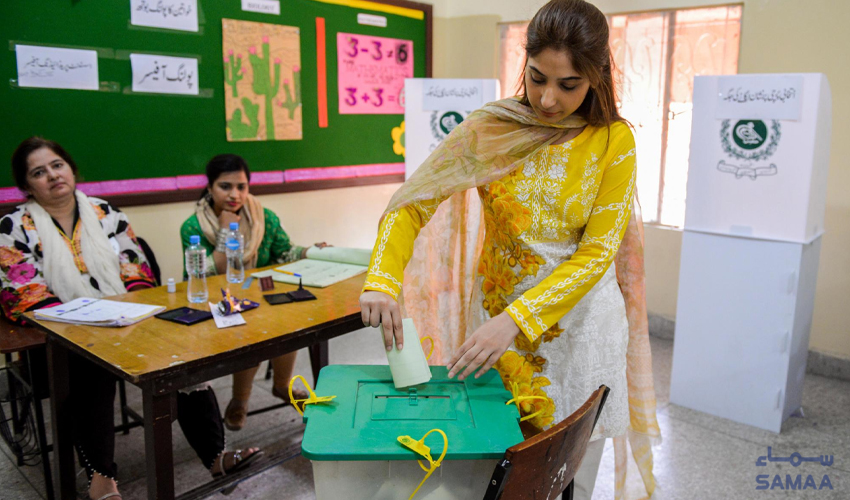Pakistan Institute of Legislative Development and Transparency, (PILDAT) has released a comprehensive report shedding light on the involvement of young voters in Pakistan’s electoral process.
Highlighting the significance of this demographic, the report revealed that during the 2018 general elections, 37% of the youth exercised their voting rights, marking a significant increase from the average turnout of 31% in the last eight elections.
At the report’s launching ceremony, various political figures voiced their concerns and suggestions. Pakistan PTI Senator Ali Zafar raised allegations regarding the implementation of free and fair election principles, stating that these standards aren’t being upheld.
Pakistan Muslim League-Nawaz (PML-N) Senator Afnanullah expressed concerns about certain political factions engaging in negative propaganda that impacts the youth's perception.
PPP leader Farhatullah Babar emphasized urgent measures, including the restoration of student unions in universities and the allocation of special seats for youth. Babar highlighted the importance of making identity cards for one crore women, asserting that failure to address this issue might deter the participation of both women and youth in future elections, potentially tarnishing the electoral process.
The speakers unanimously stressed the need to create an equitable and fair environment for all political parties participating in the upcoming general elections. Additionally, they underlined the importance of local bodies in fortifying the democratic structure of the nation.
Bilal Gilani, the Executive Director of Gallup Pakistan, proposed exploring alternatives to the ID card requirement for voting, citing examples from other countries where different forms of identification are accepted. He suggested promoting the use of postal ballots as a potential strategy to bolster voter turnout.


























